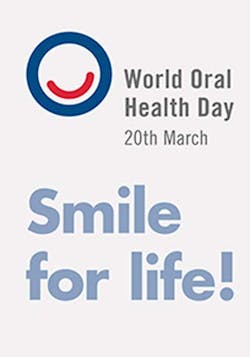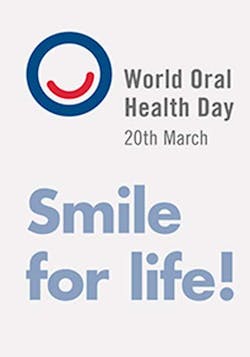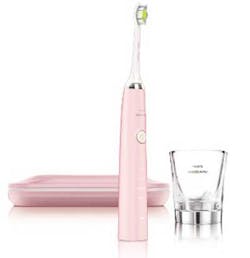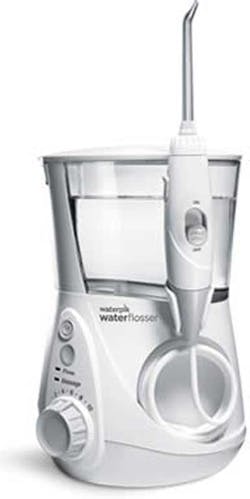The latest updates in perio from the experts
There’s new knowledge about periodontal diseases and their effects on the mouth and body. From cardiovascular and respiratory diseases, implant failure, inflammation, and other maladies, there is original research being conducted around the globe. This article discusses a few of the latest and novel findings.
A study in the Journal of Dental Hygiene that reviewed cardiologists' knowledge of the relationship between periodontal disease and heart disease found that many were unclear about the cause of periodontal disease. However, researchers found that cardiologists would like to have more information about the potential link between the two conditions. The study authors wanted to know if other health-care professionals were being educated about oral health, specifically about links between oral and systemic health and disease. They questioned whether the laboratory and clinical findings from studies were being translated to direct patient care.
The authors wanted to know if cardiologists are aware of the American Journal of Cardiology and Journal of PeriodontologyEditors' Consensus: Periodontitis and Atherosclerotic Cardiovascular Disease, published in 2009. They also wanted to know if cardiologists were aware of the recommendations for collaborative care of patients. Sixteen percent of respondents said they were slightly familiar with them, while 78% said they were not familiar with them.(1) While 22% were aware of the statement from the AHA, 86% said the statement had not changed their opinion about the importance of oral health to overall health.
Only 20% of physicians reported that their professional education included oral health content, while 80% reported not receiving any education on oral health care. The majority of physicians agreed it is important for cardiologists and periodontists to work together to educate their patients about oral systemic disease risks.
Another study found a new mechanism in regeneration of bone lost to inflammatory disease – as in periodontitis – using NPRM-bLXA. It was demonstrated in a large animal model.(4) In the ongoing remodeling of bone, the cellular events initiated by bLXA led to efficient control of the biofilm environment, which led to the elimination of pathogens, up-regulation of endogenous proresolving molecules such as lipoxins and resolvins, and direct actions on bone cells that affect osteogenesis. This resulted in significant regeneration of bone and connective tissue, and reestablishment of the periodontal structure. The authors harnessed the biomimetic properties of proresolving lipid mediators to promote regeneration of hard and soft tissues irreversibly lost to periodontitis in a pig model.
Another study stated that scientific evidence suggests that mechanical oral hygiene decreases the incidence of pneumonia in fragile elders.(5) Therefore, oral hygiene regimens for dependent elders should be meticulously executed, as they potentially can reduce the morbidity and mortality from aspiration pneumonia. When possible, geriatric patients should be discouraged from wearing their dentures during the night.
Implants are a very popular choice for replacing missing teeth. For the long-term stability of dental implants, they need to be osseointegrated into the alveolar bone. Osteoblasts synthesize the organic matrix of bone tissue – which is rich in collagen type I, osteocalcin, and alkaline phosphatase – and control the mineralization process. The conclusion of one investigation indicated that together with the process of inflammation, fibro-osteoblastic cells from the peri-implantitis bone tissues are responsible for the failure of osteointegration by generating a tissue that is more fibrous and expresses less osteogenic markers than healthy controls.(7)
Now back to cardiovascular disease (CVD), the findings of a Japanese study suggest that a linear relationship exists between tooth loss and degree of arterial stiffness, and that the association differs depending on sex.(8) Arterial stiffness happens as a consequence of age and arteriosclerosis. Age-related stiffness occurs when the elastic fibers within the arterial wall (elastin) begin to fray due to mechanical stress. The two leading causes of death in the developed world, myocardial infarction and stroke, are both a direct consequence of atherosclerosis.
Oral disease and CVD may be positively related in men, who had higher rates of tooth loss and arterial stiffness than women. Findings suggest that infectious agents, including those associated with periodontal disease, increase inflammatory cytokine production and platelet aggregation, which contribute to arteriosclerosis and thrombosis.(8) The conclusion was that the progression of atherosclerosis is linearly related to increased tooth loss and further strengthens the suggested association between these two factors.
These findings have intense clinical and public health implications as they provide further evidence that implementing strategies for preventing periodontal disease, which is both preventable and treatable, might help prevent atherosclerosis. Preventable and treatable contributors of CVD would increase the existing options available to clinicians and public health practitioners for the control of CVD.
Educating patients in ways to prevent periodontal disease and improve personal oral hygiene is likely to benefit not only their oral health but also their systemic health.
Maria Perno Goldie, RDH, MS, is the editorial director of RDH eVillage FOCUS.
References
1. Mosley M, Offenbacher S, Phillips C, et al. North Carolina Cardiologists' Knowledge, Opinions and Practice Behaviors Regarding the Relationship between Periodontal Disease and Cardiovascular Disease. Journal of Dental Hygiene, Vol. 88:5, pp. 275-284, October 2014.
2. Friedewald VE, Kornman KS, Beck JD, et al. The American Journal of Cardiology and Journal of Periodontology Editors’ Consensus: Periodontitis and Atherosclerotic Cardiovascular Disease. J Periodontol Volume 80, Number 7, pp 1021-1032, July 2009. Published simultaneously in The American Journal of Cardiology. Am J Cardiol, July 2009, Vol. 104:1:59-68.
3. Yu YH, Chasman DI, Buring JE, et al. Cardiovascular Risks Associated with Incident and Prevalent Periodontal Disease. J Clin Periodontol. 2014 Nov 10. [Epub ahead of print]
4. Van Dyke TE, Hasturk H, Kantarci A, et al. Proresolving nanomedicines activate bone regeneration in periodontitis. J Dent Res. 2015 Jan; 94(1):148-56. Epub 2014 Nov 11.
5. Müller F. Oral Hygiene Reduces the Mortality from Aspiration Pneumonia in Frail Elders. J Dent Res. published online 7 October 2014.
6. Grubbs V. The Association between Periodontal Disease and Kidney Function Decline in African Americans: the Jackson Heart Study. (Abstract FR-OR916), ASN Kidney Week 2014, Philadelphia, PA. http://www.asn-online.org/kidneyweek/.
7. Schminke B, vom Orde F, Gruber R, et al. The Pathology of Bone Tissue during Peri-Implantitis. Journal of Dental Research. Published Online Before Print.
8.Asai K, Yamori M, Yamazaki T , et al. Tooth Loss and Atherosclerosis: The Nagahama Study. J Dent Res, Published online 18 November 2014.




